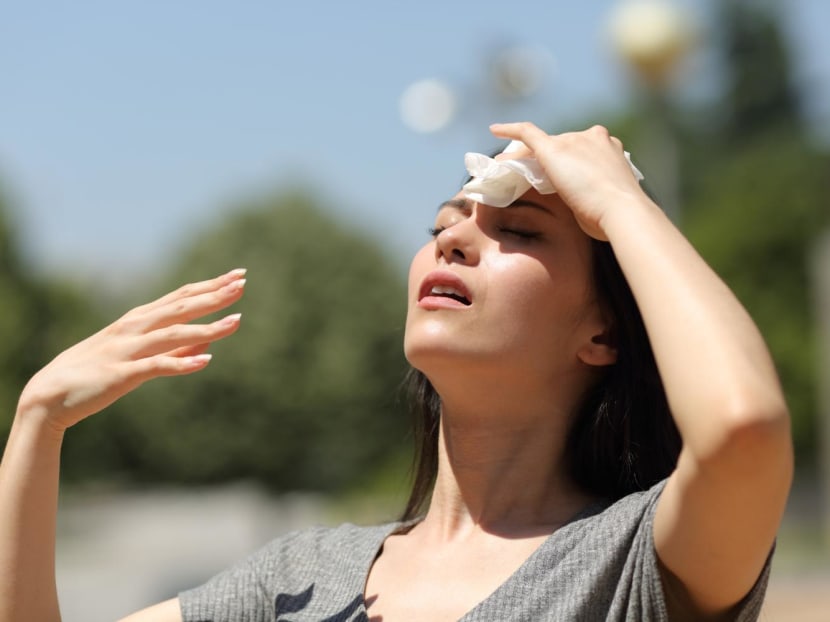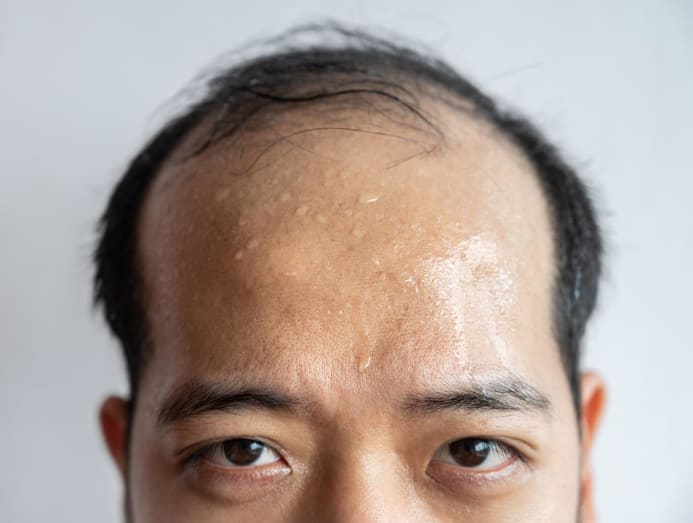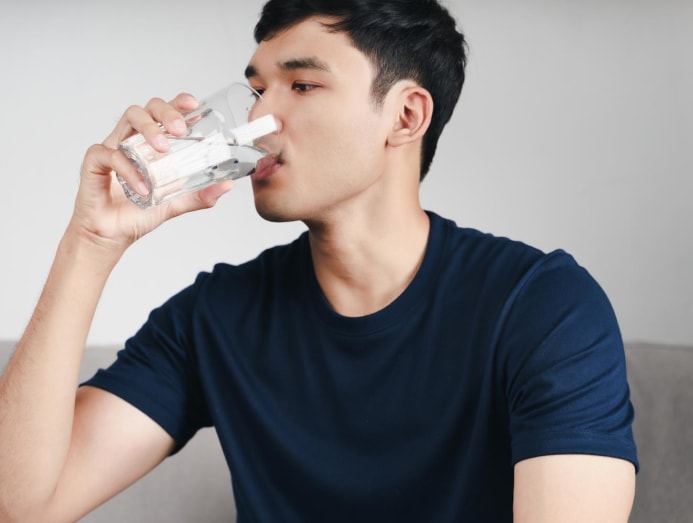Can Singapore’s hot weather make you prone to falling sick more easily?
You’ve been exercising under the sun, and going in and out of air-conditioned offices at work. We asked a doctor how this affects your health. Also, can drinking enough water really help to boost your immune system?

(Photo: iStock/Pheelings Media)
Even with the monsoon and occasional downpour, let’s face it: It is always hot in Singapore. That’s what you get for being located just 137km north of the equator (hello, full-on blast from the sun).
Dehydration and heat stroke are very real scenarios in this part of the world, especially if you work or exercise outdoors. Most of us already know the tricks to stay cool and hydrated: Drink more water, stay in the shade, switch on the fan or air-conditioner, and dress in light, breathable clothes.
But what about the notion that the heat can make you fall sick more readily? It may be widely accepted as a concept rooted in traditional Chinese medicine philosophies but on the conventional medical front, does it hold water?

HOW YOUR BODY REGULATES TEMPERATURE
Your body likes to keep its core temperature at around 37 degrees Celsius (give or take a degree or two). It’s the optimal temperature for your organs to function: Too cold and you may develop hypothermia; too hot and you’ll be hit with hyperthermia. Both are potentially life-threatening conditions and can happen when your body fails to heat-regulate.
To keep you alive and well, your body will do whatever it takes to maintain that desired temperature, according to Medical News Today. And it does that by constantly monitoring the temperature changes that affect your body, from the iced latte you just drank to the sweltering heat that greets you when you step outside. This process is known as thermoregulation and its control centre is the hypothalamus in your brain.
Once temperature deviations are detected, the hypothalamus sends out instructions for your body to act accordingly. It pumps out sweat and dilates the blood vessels to cool down the body and dissipate the heat. When it gets cold, it induces shivering to generate more body heat and constricts the blood vessels to keep the heat in.
CAN TEMPERATURE CHANGES MAKE YOU FALL SICK EASILY?
Based on those rules set by your body’s internal thermostat, would experiencing fluctuating temperatures cause it to go haywire and you to fall ill easily?
After all, many people work in the office and scenarios such as exiting an extremely cold building to get lunch in the infernal heat of the midday sun, then heading back into sub-artic temperatures again are being played out every day.
COCONUT WATER OR ISOTONIC DRINK: WHICH IS BETTER?
Coconut water has gained the reputation of a natural isotonic drink as it contains electrolytes and sugar. In reality though, the electrolyte content of coconut water is low compared to dedicated isotonic drinks.
“In theory, it should not affect our immune system as our core temperature is quite well regulated,” said Dr Derek Li, a family physician with Raffles Medical. “The core temperature is kept within a narrow range, despite potentially large fluctuations in ambient temperature.”
Having said that, Dr Li added that our immune system is certainly sensitive to temperature changes “to some extent”.
For one, people who are prone to allergies do not tolerate large temperature fluctuations well as the heat can “trigger flares of conditions like asthma, allergic rhinitis, and atopic dermatitis”. These allergies are also thought to “stem from an inherently over-active immune system”.
Another example that our immune system is sensitive to heat is that it actually functions optimally at slightly higher temperatures and “this is also why we have evolved to develop a fever to fight infections”, said Dr Li.

What about extended periods of running hot, say, hours spent cycling on the PCN? Will our immune system burst into flames like an overheated Ferrari? “Whether prolonged periods of high temperatures have a negative impact, akin to how a car engine overheats, have not been well studied,” said Dr Li.
Related:
He said that there have been extensive studies on how heat stress affects the immune system of livestock but such studies are limited in human populations. “Human studies tend to focus on how cold conditions negatively impact immune function,” he said. “It is tempting to extrapolate the data we have from livestock studies (and apply it) to humans but the simple truth is, we don't have enough formal studies on humans in this area.”
DOES DRINKING ENOUGH WATER HELP TO BOOST OUR IMMUNE SYSTEM?
First, we have to understand how the lymphatic system works. Think of our blood vessels as roads and the different types of cells such as red blood and white blood cells as vehicles, said Dr Li. “The lymphatic system is the main sewage and drainage system that runs parallel to all the roads. It picks up excess water overflowing from the roads and funnels it back into the main system in specific parts of the body.”
That’s not all the lymphatic system does. “It also serves as a sort of transport network for the body's white blood cells, which make up the backbone of our immune system,” said Dr Li. “If the lymphatic system doesn't work, white blood cells can't get to where they need to be to fight an infection and that can prevent us from fighting off infections properly.”

So, in theory, not drinking enough water can affect the function of the immune system “because all the systems are dependent on water to flow smoothly”, said Dr Li. “However, one would expect core systems like the blood pressure and heart function to be badly impacted first, long before any substantial impact on the immune system is felt. The immune function is among the last things to be impacted.”
Still, that’s not your excuse to skip filling up your bottle. “Hydration is key to general health insofar as one is adequately hydrated,” said Dr Li.
BEST WAY TO HYDRATE?
We know, water is tasteless and unexciting to drink – until you are thirsty. That’s when every drop becomes as delicious as mother’s milk to an infant. In such situations, how would factors such as fluid temperature and electrolyte make-up help to cool and hydrate you better?
They “only come into play when conditions need correcting” such as heat stress and dehydration, said Dr Li. In such medical situations, it may be more beneficial to consume cold fluids with electrolytes than just plain water.
These “conditions” are certainly different from the usual complaints of “why is the air-con not strong enough?” or “I’m not really thirsty; just craving bubble tea”. “In 99 per cent of the time, people are fine drinking regular plain water,” said Dr Li.







